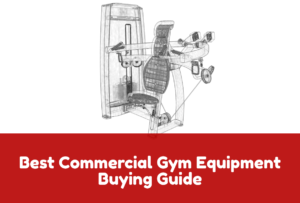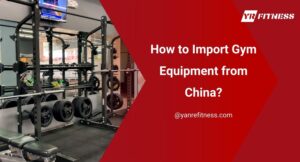Commercial Gym Flooring Tiles – Definitive FAQ Guide
Are you looking for commercial gym flooring tiles at wholesale rates?
Do gym flooring tiles are in high demand at your distribution center?
Do you want some information regarding commercial gym flooring tiles?
Do you want to understand the difference between flooring tiles and rolls?
Whatever your queries may be, we are here to help!
Our ultimate FAQ guide will tell you everything you need to know about commercial gym flooring tiles. It will help you in choosing a product that caters to your requirements.
Table of Contents
- 1. What are commercial gym flooring tiles?
- 2. What are the different types of commercial gym flooring tiles?
- 3. Which type of commercial gym flooring tiles should I buy?
- 4. What is the optimal thickness of commercial gym flooring tiles?
- 5. What is the average price of commercial gym flooring tiles?
- 6. What are the average dimensions of commercial gym flooring tiles?
- 7. What is the difference between commercial gym flooring tiles and rolls?
- 8. What is the difference between commercial gym flooring tiles and mats?
- 9. Should I buy commercial gym flooring tiles or mats?
- 10. Should I buy water-proof commercial gym flooring tiles?
- 11. Does commercial gym flooring tiles installation require professionals?
- 12. Do I need adhesives to install the commercial gym flooring tiles?
- 13. Should I use underlay below the commercial gym flooring tiles?
- 14. Do commercial gym flooring tiles help in noise reduction?
- 15. Does temperature affect commercial gym flooring tiles?
- 16. Should I completely cover the floor with commercial gym flooring tiles?
- 17. Can I customize the color of my commercial gym flooring tiles?
- 18. Can I get my logo printed on commercial gym flooring tiles?
- 19. Which factors should I keep in mind before choosing the commercial gym flooring tiles?
- 20. How can I maintain the quality of commercial gym flooring tiles?
- 21. How long do commercial gym flooring tiles last?
- 22. Conclusion
1. What are commercial gym flooring tiles?
Commercial gym flooring tiles are used to cover the floor of the gym. It is done to protect the floor and to give an aesthetically pleasing look to the gym. They usually come with interlocking edges. They can be modified to fit any space.
Some of the benefits of using commercial gym flooring tiles are as follows:
- Durability
- Shock absorption
- Traction
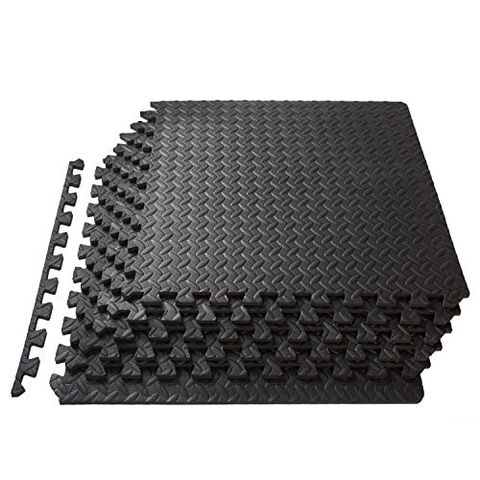
Figure 1. Commercial gym flooring tiles
2. What are the different types of commercial gym flooring tiles?
Foam Flooring
Material: High-quality EVA.
Usage: best suited for gyms that do not have heavy-weight exercises or machinery.
Pros:
- Cheap
- Easy installation
- Provides great cushioning and comfort.
Cons:
- Gets damaged by heavy weight.
- Not durable
- Low traction when wet.
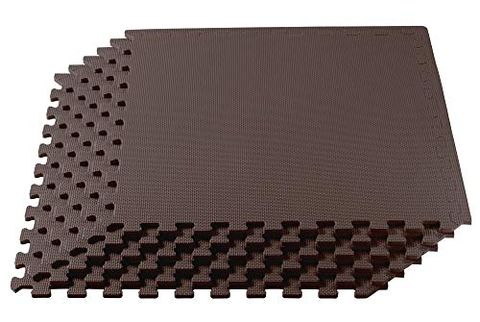
Figure 2. Foam flooring tiles
Wood Flooring
Material: Wood
Usage: suitable for gyms without heavy machinery such as dance, yoga, kickboxing, etc.
Pros: aesthetically pleasing
Cons:
- Expensive
- Get damaged by heavy machinery.
- No shock absorbance
- Splinters can cause injury.
- Requires mats to be used properly.
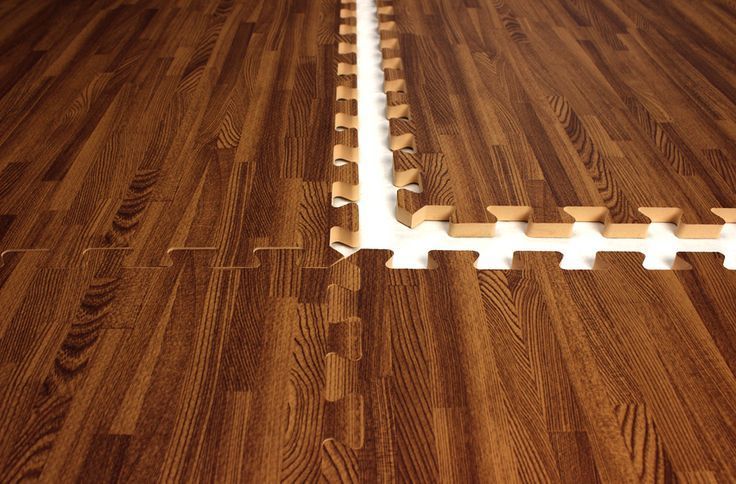
Figure 3. Wooden flooring tiles
Vinyl Flooring
Material: high-quality PVC
Usage: suitable for all sorts of gym
Pros:
- Available in a variety of colors
- Long-lasting
- Easily cleanable
- Easy installation
Cons:
- Expensive
- Low shock absorbance
- Can get damaged by sharp objects.
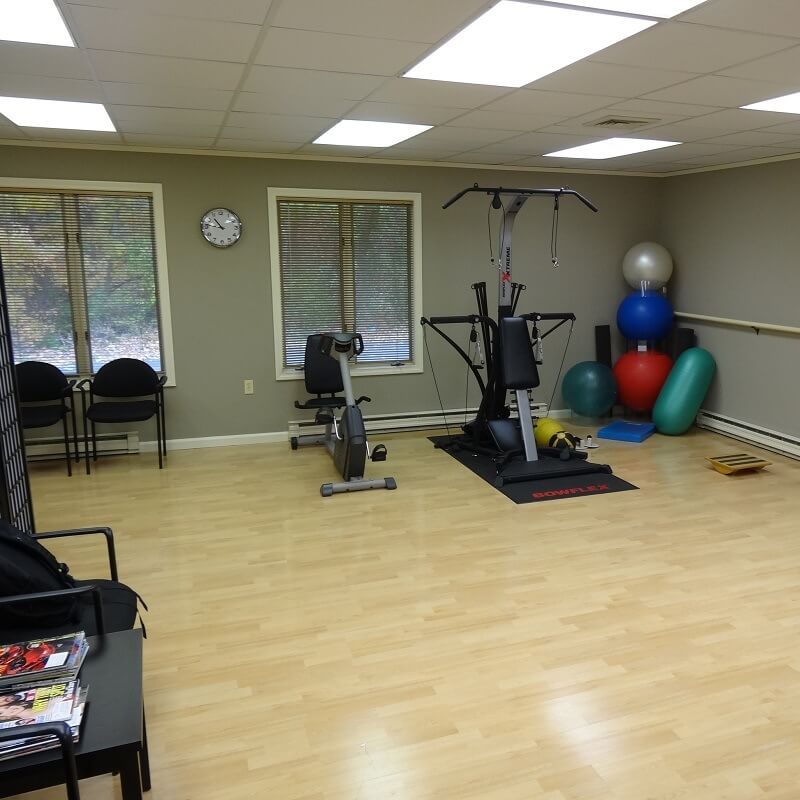
Figure 4: Vinyl flooring
Turf Flooring
Material: synthetic grass made from either Polypropylene (PP) or Polyethylene (PE)
Usage: suitable for all commercial gym types
Pros:
- Aesthetically pleasing
- Excellent shock absorbance
- Long-lasting
- Do not get damaged by heavy machinery.
Cons:
- Expensive
- Complicated installation
- Does not provide sub-floor protection.
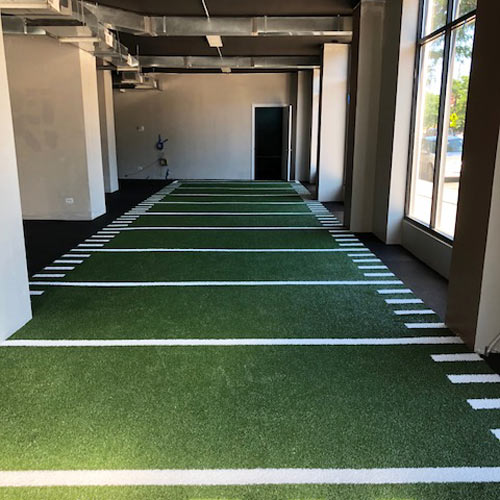
Figure 5. Turf flooring
Rubber Flooring
Material: natural tree rubber or recycled rubber
Usage: suitable for all gym types
Pros:
- Less expensive
- Long-lasting
- Shock absorbent
- Easy installation
- Damage resistant
Cons:
- Smelly
- Low insulation
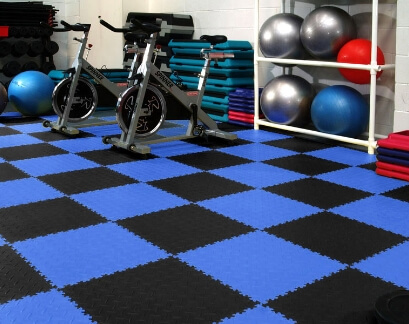
Figure 6. Rubber flooring
Carpet Flooring
Material: nylon, polyester, or wool fibers
Usage: not suitable for gyms with heavy-weight equipment
Pros:
- Shock absorbent
- Cheap
Cons:
- Does not last long.
- Can get smelly.
- Risk of infection
- Absorbs moisture.
- Does not protect the sub-floor.
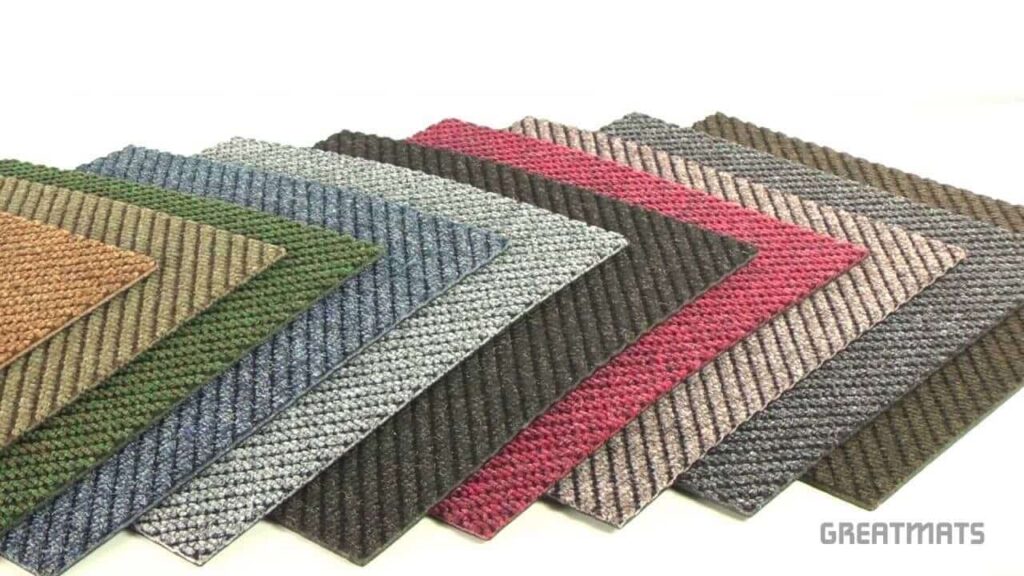
Figure 7: Carpet flooring
Cork Flooring
Material: tree barks
Usage: suitable for average level gyms
Pros:
- Cheap
- Eco-friendly
- Provides great cushioning.
Cons:
- Not durable
- Gets damaged from heavy equipment.
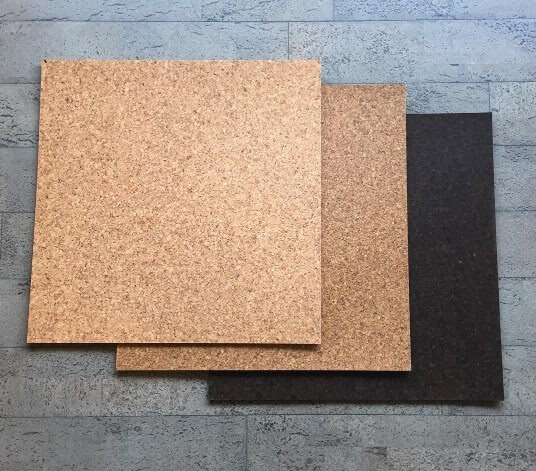
Figure 8: Cork flooring tiles
3. Which type of commercial gym flooring tiles should I buy?
Rubber tiles are widely recommended gym flooring tiles all over the world.
This is because they are durable, cheap, and versatile. They can be modified to any color and size. They are excellent shock absorbers. All these reasons make them the best choice for commercial gym flooring tiles.
YR Fitness offers a wide range of commercial gym flooring tiles. We are sure to provide something that fulfills your requirements.
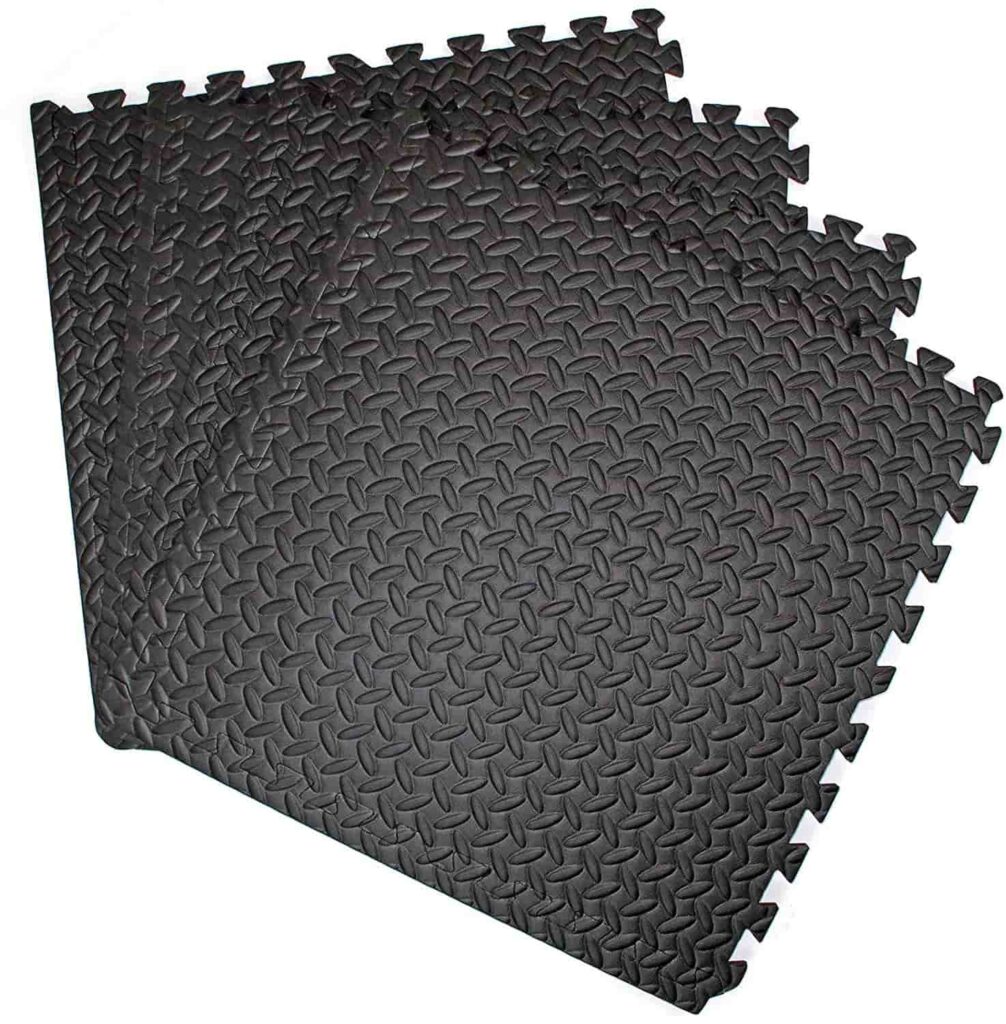
Figure 9. Rubber flooring tiles for commercial gyms
4. What is the optimal thickness of commercial gym flooring tiles?
The optimal thickness for gym flooring tiles is 3/8 inches.
Commercial gym flooring tiles are generally available between ¼ inches to ½ inches thick.
It is recommended to use ½ inches thick tiles where heavy-weight equipment is used. Such as bumper plates for deadlifts. It is done to ensure that the gym floor does not get damaged and to avoid the equipment from bouncing back after it is thrown.
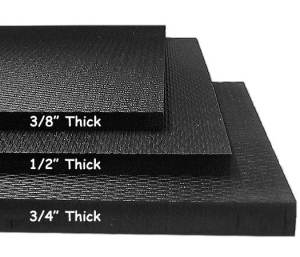
Figure 10. The thickness of commercial gym flooring tiles
5. What is the average price of commercial gym flooring tiles?
Commercial gym flooring tiles cost $2 to $20 per square foot.
The price depends on the material and quality of the flooring. Rubber flooring is much cheaper as compared to vinyl or wood flooring.
6. What are the average dimensions of commercial gym flooring tiles?
The standard accepted dimensions of commercial gym flooring tiles are 2ft*2ft.
However, they can be modified to any size.
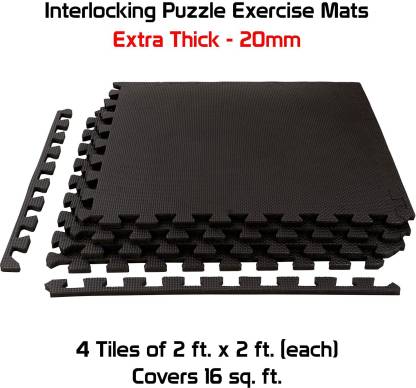
Figure 11. Size of a commercial gym flooring tile
7. What is the difference between commercial gym flooring tiles and rolls?
The difference is just in the shape of the product.
Commercial gym flooring tiles are small pieces of flooring with interlocking edges. While flooring rolls are huge rolls just like carpet.
Following are a few more differences between them.
- Tiles are easy to install as compared to rolls.
- Tile installation does not require adhesive while rolls do.
- Tiles can be easily stored while rolls require large space.
- Tiles are expensive as compared to rolls.
- Tile installation can be very time-consuming as compared to rolls.
- Tiles can fit small spaces and corners very easily.
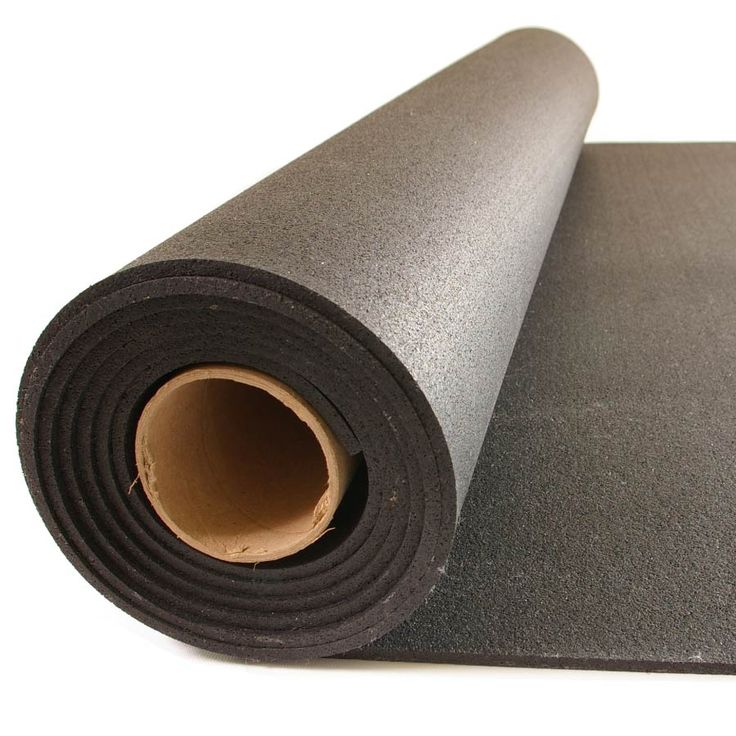
Figure 12. Commercial gym flooring rolls
8. What is the difference between commercial gym flooring tiles and mats?
The difference between the two is in their shape.
Gym flooring tiles are small pieces of flooring with interlocking edges. On the other hand, flooring mats are like rolls, but they are cut into small pieces.
Following are some of the other differences between the two:
- The interlocking edges in flooring tiles are not long-lasting.
- Flooring mats need adhesive to keep them in place.
- Flooring mats might get curled from the edges more easily.
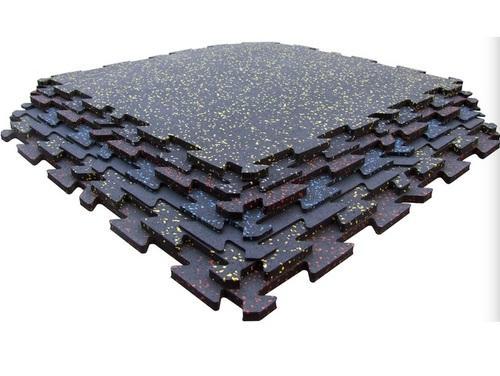
Figure 13. Commercial gym flooring mats
9. Should I buy commercial gym flooring tiles or mats?
If you own a distribution center, you should buy both varieties to satisfy the needs of all types of clients.
On the other hand, if you own a commercial gym, things might be different for you. We recommend you buy flooring rolls for large areas of your gym. Meanwhile, the small areas and the edges can be covered using flooring tiles.
This choice also differs according to the area of the gym. For heavy-weight exercises such as deadlifts and for stressful exercises such as running, use tiles. And for simple walkways, use mats.
YR Fitness offers all types of commercial gym flooring tiles and mats. We assure you that you will find something to fulfill your requirements.
10. Should I buy water-proof commercial gym flooring tiles?
Yes, we 100% recommend you buy water-proof commercial gym flooring tiles.
This is because the flooring can be damaged if it absorbs water. Moreover, it can cause infections due to mold. Lastly, water-proof flooring can help in the reduction of the smell caused by sweating.
11. Does commercial gym flooring tiles installation require professionals?
It depends on the material of gym flooring tiles and your preferences.
Rubber tiles can be easily installed without much help. While the installation of turf tiles or vinyl tiles requires professionals. Commercial gym flooring tiles always come with a user manual that gives step-by-step instructions about how to install the flooring.
Moreover, if you have a small space to cover, you can surely do it yourself. However, covering a large space with tiles can be a tiresome job. Therefore, some extra help is always recommended.
12. Do I need adhesives to install the commercial gym flooring tiles?
Using adhesives is not necessary but highly recommended.
Commercial gym flooring tiles come with interlocking edges that keep them in place. However, after some usage, they might get disconnected and cause slippage. Therefore, it is recommended to use glue to keep them in place.
13. Should I use underlay below the commercial gym flooring tiles?
Yes, using underlays below the commercial gym flooring tiles is always beneficial. Following are the few benefits of using them:
- Increases shock absorption.
- Reduces noise.
- Stabilizes floor.
- Sub-floor protection.
- Increases the life of gym flooring.
Before buying an underlay, make sure that it is compatible with your commercial gym flooring tiles.
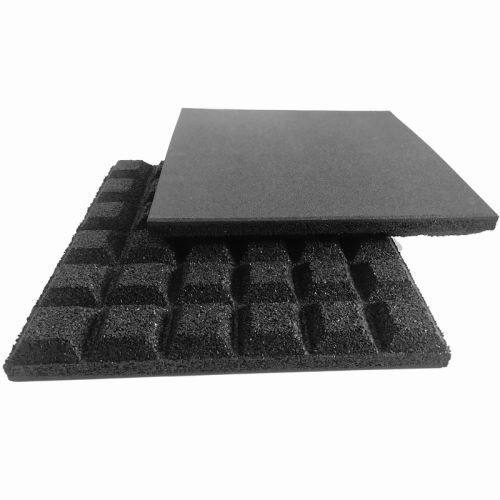
Figure 14. Underlay for commercial gym flooring tiles
14. Do commercial gym flooring tiles help in noise reduction?
This property differs according to the type of commercial gym flooring tiles.
Rubber tiles are best for noise reduction. If you want to estimate the noise reduction capacity of your flooring, refer to its shock absorption capacity. The higher the shock absorbance, the higher will be its noise reduction capacity.
Moreover, using an underlay can also help in noise reduction.
15. Does temperature affect commercial gym flooring tiles?
Yes, the temperature can cause flooring tiles to contract or expand. This phenomenon is usually observed in rubber tiles.
To avoid this issue, you may leave the tiles unglued for a few days. It will help the tiles in getting adjusted to space. Moreover, removable joints can also be installed that may be removed when expansion occurs.
16. Should I completely cover the floor with commercial gym flooring tiles?
Yes, we recommend you completely cover the floor with gym tiles. Although it is not necessary, it has multiple benefits. Such as,
- It prevents trainers from tripping over the edges.
- It prevents dirt accumulation at the corners.
- It prevents moisture from sweeping below the tiles.
Conclusively, it helps you in maintaining the hygiene of your gym.
17. Can I customize the color of my commercial gym flooring tiles?
Yes, YR Fitness provides color customization services for commercial gym flooring tiles. We are a trusted commercial gym tiles manufacturer in China.
We offer commercial gym flooring tiles in a variety of colors. But if you are still interested in a different color, please feel free to reach out to us. Our customer care staff will be happy to hear from you.
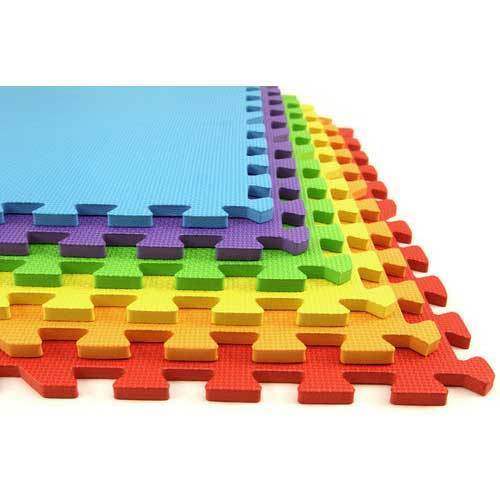
Figure 15: Commercial gym flooring tiles in a variety of colors
18. Can I get my logo printed on commercial gym flooring tiles?
Yes, you can!
If you want to get your logo printed on commercial gym flooring tiles, please contact YR Fitness. Let us know your requirements and we will be happy to fulfill them.
19. Which factors should I keep in mind before choosing the commercial gym flooring tiles?
Multiple factors are involved in choosing the right type of commercial gym flooring tiles. Some of them are listed below:
- The type of area that needs to be covered.
- The type of equipment that will be used there.
- The type of exercises that will be done there.
- The total area that needs to be covered.
- The surrounding environment of the gym.
- How often can you replace them?
- Your budget for flooring
Make sure to carefully analyze these points before buying flooring tiles for your gym. However, if you are buying them for your distribution center, choose something that is in demand.
20. How can I maintain the quality of commercial gym flooring tiles?
To extend the durability of commercial gym flooring tiles, keep a quality control check. Clean and disinfect them regularly.
Never use any harsh chemicals as they might damage the quality of tiles. You can find detailed cleaning instructions and suitable chemicals in the user manual.
21. How long do commercial gym flooring tiles last?
Commercial gym flooring tiles are durable for 8 to 10 years if they are properly maintained.
This is because commercial gym flooring tiles undergo daily wear and tear. By the time, they get thinner and the friction and shock absorbance is reduced.
Therefore, we recommend changing the gym flooring after every 8 to 10 years to ensure that your gym looks attractive and offers comfort to its users.
22. Conclusion
We hope that after reading our FAQ guide, you have answers to all your questions regarding commercial gym flooring tiles. And you are now ready to order your required product. YR Fitness offers multiple varieties of commercial gym flooring tiles. Contact us for detailed information about any product. We will be happy to give you a customized price quote.


